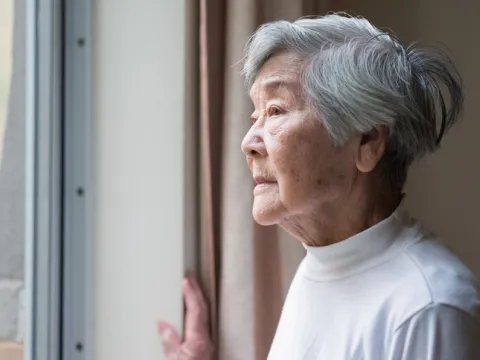- AdventHealth Whole Health Institute

Whole-person integrative medicine focused on healing you in mind, body and spirit. It's more than fixing what’s wrong. It’s about celebrating what’s right and making sure you’re on the path to a healthier, stronger you.
When a new drug for Alzheimer’s dementia, Aduhelm, was approved by the FDA, it stirred up feelings of hope for the public as well as controversy within the medical community.
Why hope? Aduhelm is the first new drug approved for Alzheimer’s in 20 years, and we desperately need an effective treatment for this terrible, thus far considered incurable, disease.
Why controversy? At $56,000 per year for treatment, Aduhelm was only marginally effective and only at a high dose during a second trial—after the first trial was stopped due to meeting the criteria for futility. In addition, significant side-effects, such as brain bleeding and swelling, were experienced by nearly half of the APOE4 gene carriers in the study.
The APOE4 gene is present in 2/3 patients with Alzheimer’s dementia, with the disease being most common in those who inherited two APOE4 copies—one from each parent.
The APOE4 gene was identified as a risk factor for Alzheimer’s in 1993 and, thankfully, much has been learned since then. For instance, while APOE4 increases the risk of Alzheimer’s by as much as 15-fold for people with two copies living in the United States, it does not appear to have any bearing on the risk of Alzheimer’s dementia for people living in West Africa (Osuntokun et al, 1995).
The APOE4 gene likely served our ancient hunter-gatherer ancestors well. It allowed them to better absorb fat to go longer without food and equipped them with an immune system eager to launch a life-saving inflammatory response to injury. The very same gene, however, does not serve us when dipped in the modern American lifestyle of munching on processed, sugary foods and beverages in front of our television sets. The excessive, constant inflammation triggered by processed and fast food unleashes a chemical war of cytokines in our body—including the brain—leading to collateral damage including the death of brain cells, leading to yet more inflammation and more destruction—a self-perpetuating and vicious cycle.
Our brain’s glymphatic (“sewage”) system can siphon out debris and abnormal proteins during deep sleep but we have dropped an average 90 minutes of sleep per night since last century and some erroneously consider it a badge of honor. The epidemic of sleep deprivation is compounded by stress and environmental pollution which damages our mitochondria (the energy factories of our cells), making us more vulnerable to chronic infections including those affecting the brain (herpes virus, Lyme disease). Add bacteria crawling into our brain from gum disease and the decimation of the gut microbiome by Western diet, antibiotics and pesticides causing yet more inflammation and food sensitivities and the storm is perfect.
In other words, it is not the gene, but the lifestyle and the environment that is causing Alzheimer’s, or at least a big chunk of it.
We need to move, eat real food in moderation, feel the sunshine on our skin, laugh, live, smell the pine trees instead of car exhaust and take care of the land we have the privilege to live on.
Like diabetes, obesity and depression, we have begun exporting Alzheimer’s to foreign lands—along with the golden arches, donuts, and the worship of working more at the expense of sleep, exercise, and time spent with family, friends and nature.
As the native Suquamish Chief Seattle said over a hundred years ago, “Contaminate your bed and you will one night suffocate in your own waste.”
We need to take a deep look at our American lifestyle, our food industry, agricultural practices, and get our act together fast, as with the projected rise of Alzheimer’s from 5 million people in 2014 to nearly 14 million by 2060 – there is no amount of Aduhelm that will save us, even if we could afford it.
So, let’s do it; we have no time to spare. And if we manage to change our way of living, I am certain we will have less heart disease, obesity, diabetes, allergies, autoimmune diseases, depression, cancer, inflammatory bowel diseases, and just about every other chronic disease.



